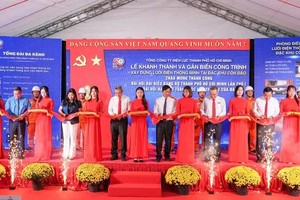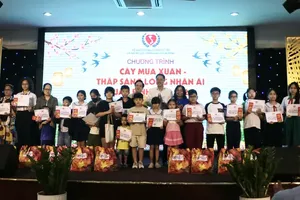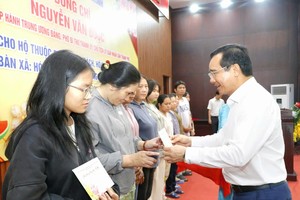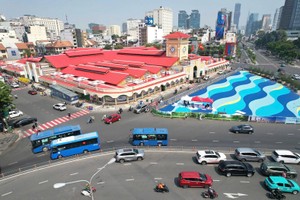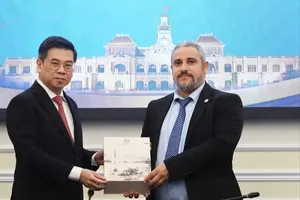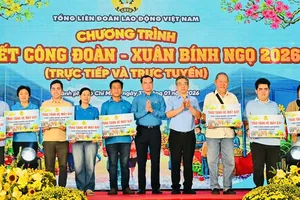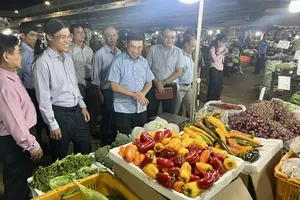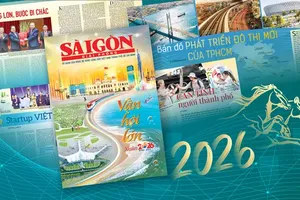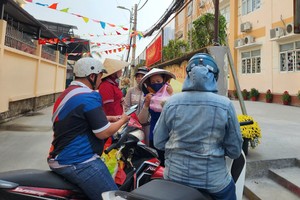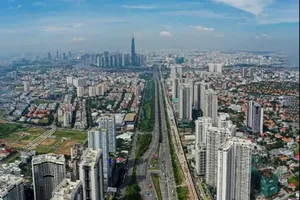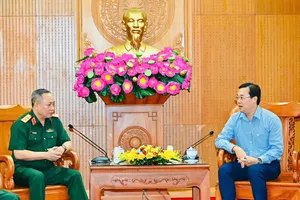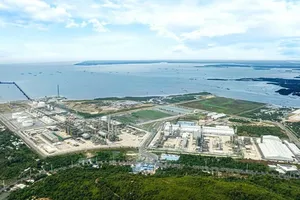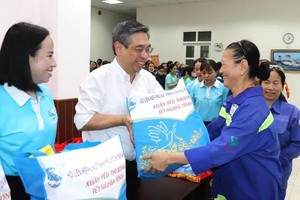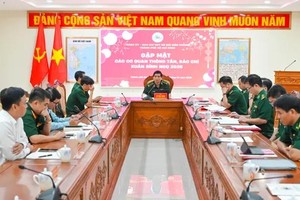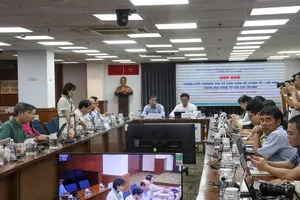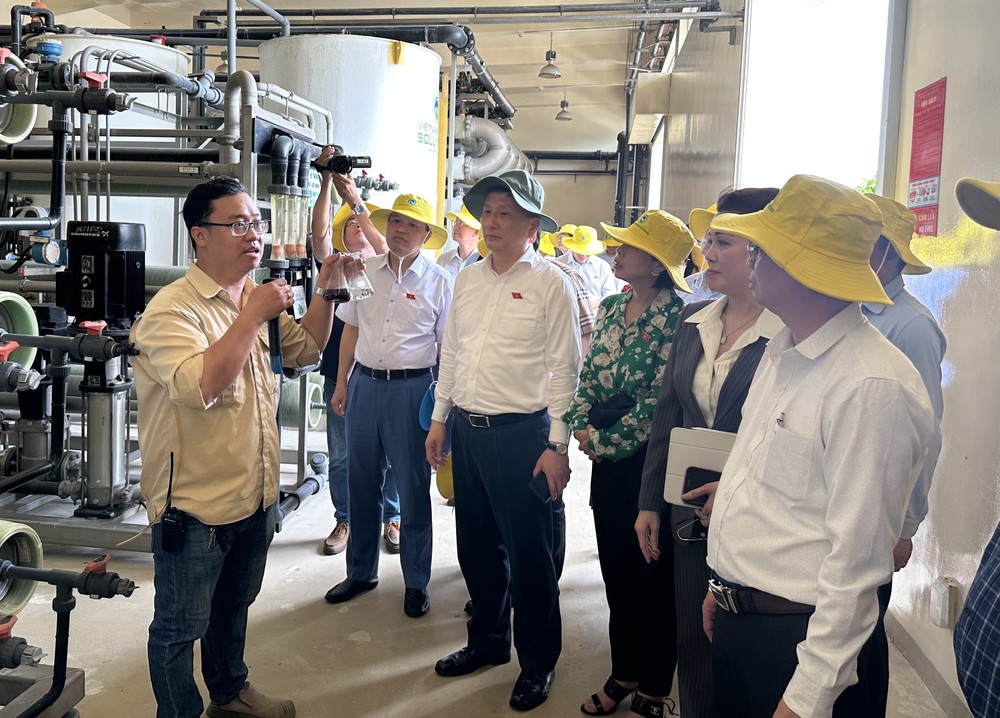
Led by Vice Chairman of the National Assembly Le Minh Hoan, the delegation met with Chairman of the Ho Chi Minh City People's Committee Nguyen Van Duoc to review the implementation of environmental protection policies and laws since the Law on Environmental Protection 2020 came into effect. The discussions highlighted the city's commitment to safeguarding its environment as it continues on a path of robust growth and development.
The monitoring delegation previously visited Thuan An Urban Wastewater Treatment Plant in Lai Thieu Ward and Da Phuoc Waste Treatment Complex in Hung Long Commune, where they held discussions addressing waste treatment matters.
During the meeting, Deputy Director of the Department of Agriculture and Environment of Ho Chi Minh City Nguyen Hong Nguyen stated that the city is actively developing and restructuring its domestic solid waste management model in alignment with the two-tier local government framework. This initiative aims to enhance the efficiency of waste collection, transportation, and treatment.
Currently, the estimated daily volume of domestic solid waste generated across the city is approximately 14,000 tons with previous figures being around 10,500 tons a day in the Ho Chi Minh City area, 2,400 tons a day in Binh Duong and 1,100 tons a day in Ba Ria - Vung Tau. Nearly 99 percent of this waste is collected, transported, and treated. Of that, around 40 percent is processed through incineration, composting, and recycling technologies, while the remaining 60 percent is disposed of via sanitary landfilling.
Doan Thi Thanh Mai, the Vice Chairwoman of the Economic and Financial Committee of the National Assembly and member of the monitoring delegation, voiced her concerns regarding the monitoring process at two waste treatment facilities in Ho Chi Minh City. A significant issue was identified: the proximity of the waste treatment area to residential zones, with some locations being merely separated by a single wall.
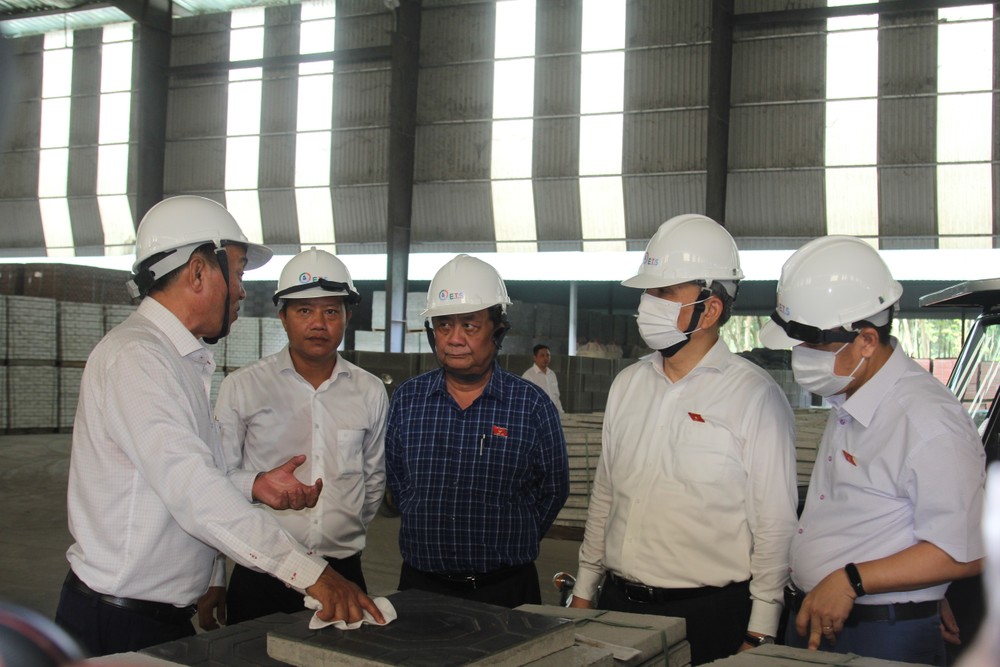
This situation has a direct impact on the lives, health, and mental well-being of residents. In light of these circumstances, Ms. Doan Thi Thanh Mai has requested that the Ho Chi Minh City People's Committee provide a detailed report on the waste treatment process, particularly concerning the disposal of waste by businesses operating in the vicinity.
Additionally, she has called for clarification on the timeline and strategy for implementing waste classification at the source.
Concluding the meeting, Vice Chairman of the National Assembly Le Minh Hoan highly appreciated the efforts and results that Ho Chi Minh City has achieved in environmental protection, especially when the city has been developing rapidly in many aspects and facing great pressure on population and urbanization.
In addition to the positive results, the Vice Chairman of the National Assembly suggested that Ho Chi Minh City needs to take stronger and more drastic steps, clearly defining the viewpoint that environmental protection is not only a regular task but also a vital factor for the sustainable development of the city.
The city needs to build a development strategy in the direction of putting people at the center, changing the mindset of environmental management towards considering waste as a resource, an input for the circular economy, he added.
The Vice Chairman of the National Assembly called on Ho Chi Minh City to prioritize key initiatives, notably the active review and refinement of legal documents, directives, and management guidelines concerning environmental protection. Drawing on practical management experiences, it is imperative to propose revisions and supplements to the Law on Environmental Protection to ensure its alignment with actual conditions on the ground.
Additionally, Ho Chi Minh City must continue enhancing the quality of its planning efforts, boost the mobilization of social resources, and invest in the development of the technical infrastructure necessary for effective environmental protection. Specifically, there should be a concentrated effort on creating a detailed roadmap to address pressing issues such as air pollution and the treatment of both domestic and industrial waste.
The Vice Chairman of the National Assembly also highlighted the need for Ho Chi Minh City to lead in innovation, adopt scientific and technological advancements, and promote digital transformation in the field of environmental protection, thereby contributing to the development of a civilized and modern city with a high quality of life.
Chairman of the Ho Chi Minh City People's Committee Nguyen Van Duoc highly appreciated the directives of National Assembly Vice Chairman Le Minh Hoan along with valuable input from the monitoring delegation—particularly several innovative proposals in the field of environmental protection which are highly practical. The Chairman pledged the city's commitment to implementing them seriously in the near future.
On the topic of waste treatment, Chairman Nguyen Van Duoc reaffirmed that transitioning to waste-to-energy incineration technology remains a strategic priority. However, he noted that the main challenge lies not in attracting investment, but in the disparity between investment costs and current pricing, which hampers financial viability. To address this, he urged the Central Government to issue supportive policies and introduce appropriate pricing mechanisms, thereby enabling stable operations of waste-to-energy plants and advancing the city’s goals for a circular economy and sustainable environmental protection.
Earlier that morning, Vice Chairman Le Minh Hoan led a National Assembly delegation to inspect the implementation of environmental protection laws and policies at Nam Binh Duong Waste Treatment Complex in Chanh Phu Hoa Ward of Ho Chi Minh City. Accompanying him were Head Nguyen Van Loi of the city Delegation of National Assembly Deputies and Vice Chairman Bui Minh Thanh of the Ho Chi Minh City People's Committee.
